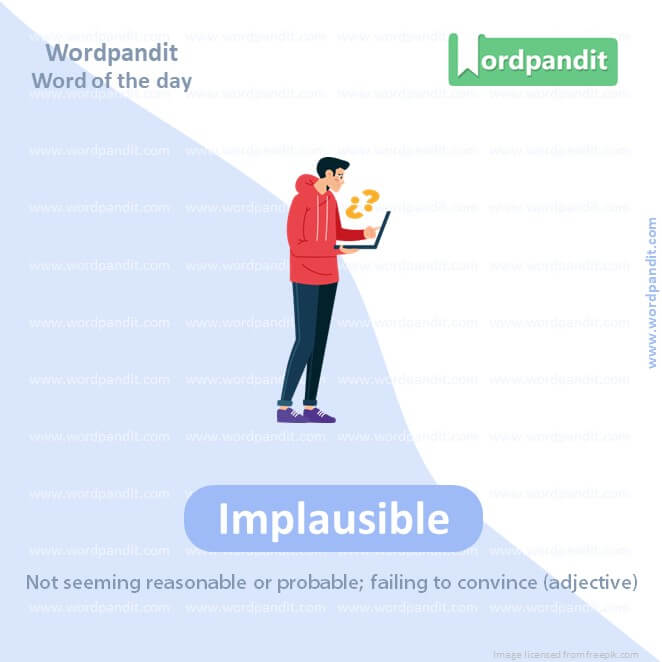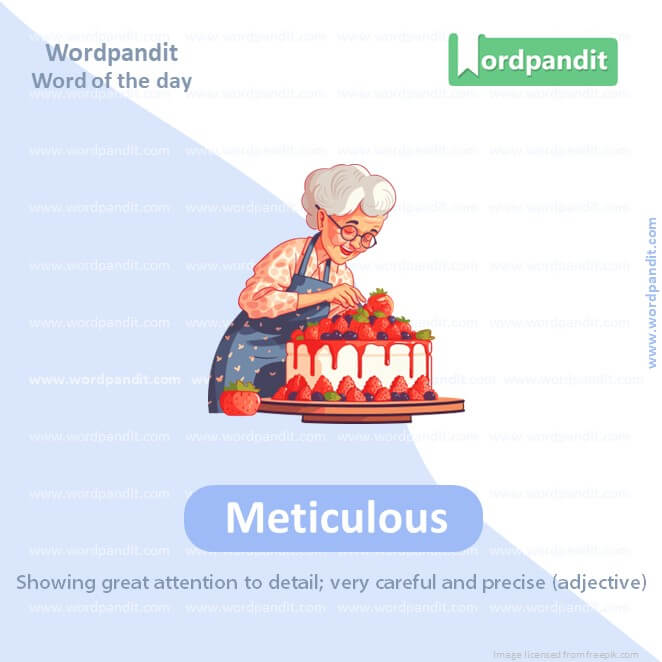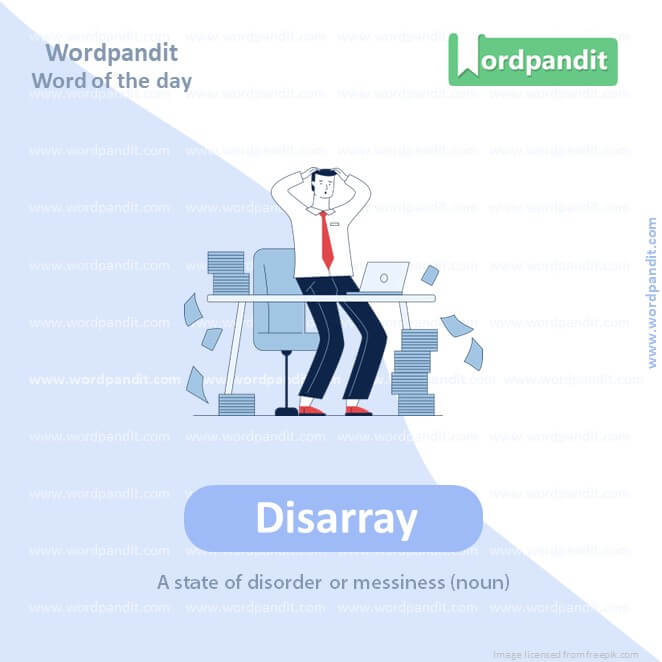Daily Vocabulary Words: Enhance Your Lexicon with Leading Newspapers & Publications
Welcome to the Daily Vocabulary section at Wordpandit!
Our mission is straightforward: to bring you essential vocabulary words featured in top newspapers and publications worldwide. By focusing on words you’ll encounter in renowned sources, we aim to help you enhance your vocabulary effectively and practically.
Our selection includes words from:
– The New York Times
– The Washington Post
– Scientific American
– BBC
– The Guardian
– Psychology Today
– Wall Street Journal
– The Economist
– The Hindu
– The Times of India
– The Economic Times
– Hindustan Times
– Live Mint
– The Indian Express
– And many more.
We are committed to your vocabulary development. Simply visit this section regularly and explore the daily posts. This is your go-to repository for commonly used words, providing significant practical benefits by familiarizing you with vocabulary from the leading publications listed above.
Make it a habit to visit our website daily and expand your lexicon with words from top newspapers and publications.
WORD-1: EUPHEMISM
CONTEXT: How did this high command, which is a euphemism for the Gandhi family, spend two weeks mulling over the invitation they got and then arrive at a decision that harms the party more than anyone else.
SOURCE: Indian Express
EXPLANATORY PARAGRAPH: Imagine you broke a toy, and instead of saying, “You broke it,” someone says, “The toy had a little accident.” That is called a “euphemism.” It’s a nicer or softer way of saying something that might be too harsh or direct.
MEANING: A mild or indirect word or expression used in place of one that is considered too harsh or blunt when referring to something unpleasant or embarrassing (noun).
PRONUNCIATION: YOO-fuh-miz-uhm
SYNONYMS: polite term, mild expression, understatement, soft language, sugarcoating, indirect term, alternative expression
USAGE EXAMPLES:
1. Saying someone “passed away” instead of “died” is a common euphemism.
2. The phrase “let go” is a euphemism for being fired from a job.
3. Using “sleep” as a euphemism for death is often comforting for children.
4. The company used a euphemism when they said they were “downsizing” instead of “firing employees.”

WORD-2: PLAUSIBLE
CONTEXT: A good reason but not plausible. It was Rajiv Gandhi who opened the locks to what was then the Babri Masjid and he organized his own consecration ceremony for a Ram Temple before the general election in 1989.
SOURCE: Indian Express
EXPLANATORY PARAGRAPH: Imagine you say, “I didn’t eat the cookie, the dog did!” If your story sounds like it could be true, that’s called “plausible.” It means something seems like it could really happen or be true.
MEANING: Not seeming reasonable or probable; failing to convince (adjective)
PRONUNCIATION: PLAW-zih-buhl
SYNONYMS: believable, credible, likely, possible, conceivable, reasonable, feasible
USAGE EXAMPLES:
1. Her explanation for being late was plausible, so the teacher didn’t question it further.
2. The detective found the suspect’s alibi to be plausible.
3. It’s plausible that it might rain today, looking at the dark clouds.
4. The story sounded plausible, but it turned out to be a lie.
WORD-3: CONSECRATION
CONTEXT: Pilgrims have started flocking to Ayodhya in such huge numbers that Modi has appealed for people to celebrate instead in their own homes on the day of the consecration.
SOURCE: Indian Express
EXPLANATORY PARAGRAPH: Imagine you have a special toy, and you decide it’s only for your most important moments. When something is made special or sacred, it’s called “consecration.”
MEANING: The action of making or declaring something sacred or holy (noun).
PRONUNCIATION: KON-suh-kray-shun
SYNONYMS: dedication, sanctification, blessing, hallowing, devotion, anointing, sacredness
USAGE EXAMPLES:
1. The consecration of the church made it a holy place for worship.
2. The ceremony included the consecration of the altar.
3. His life was marked by the consecration of his time to helping others.
4. The consecration of the new building was attended by many community members.

WORD-4: NULLIFIED
CONTEXT: The low bounce nullified our strength and our aggressive batting was out of the equation as well.
SOURCE: Indian Express
EXPLANATORY PARAGRAPH: Imagine you built a tower with blocks, but someone knocked it down. When something gets canceled or taken away, it’s called “nullified.”
MEANING: Made legally null and void; invalidated (Verb)
PRONUNCIATION: NUH-lih-fide
SYNONYMS: canceled, invalidated, voided, negated, annulled, abolished, repealed
USAGE EXAMPLES:
1. The contract was nullified after both parties agreed to terminate it.
2. His vote was nullified because he filled out the ballot incorrectly.
3. The bad weather nullified our plans for a picnic.
4. The new law nullified previous regulations on the same issue.

WORD-5: METICULOUS
CONTEXT: The final result doesn’t take away all the meticulous planning which made India the team to beat — since the Asia Cup.
SOURCE: Indian Express
EXPLANATORY PARAGRAPH: Imagine you’re coloring a picture and you make sure not to go outside the lines at all. Being very careful and paying attention to every tiny detail is called “meticulous.”
MEANING: Showing great attention to detail; very careful and precise (adjective)
PRONUNCIATION: muh-TIK-yuh-luhs
SYNONYMS: careful, precise, thorough, detailed, exact, diligent, scrupulous
USAGE EXAMPLES:
1. She was meticulous in organizing her notes for the project.
2. The artist was meticulous in adding every detail to the painting.
3. His meticulous planning ensured the event went off without a hitch.
4. A meticulous approach is required when assembling the tiny parts of the model.

WORD-6: DISARRAY
CONTEXT: The first time at the World Cup, they threw our plans into disarray and we couldn’t counter theirs.
SOURCE: Indian Express
EXPLANATORY PARAGRAPH: Imagine your room after a day of playing, with toys everywhere and nothing in order. That messy state is called “disarray.”
MEANING: A state of disorder or messiness (noun)
PRONUNCIATION: DIS-uh-ray
SYNONYMS: chaos, disorder, mess, confusion, clutter, turmoil, untidiness
USAGE EXAMPLES:
1. The room was in disarray after the children finished playing.
2. The unexpected news threw the team into disarray.
3. His desk was in such disarray that he couldn’t find his notes.
4. After the storm, the town was left in disarray.

WORD-7: AVIATION
CONTEXT: As far as aviation is concerned, developing sustainable aviation fuel is a long way off.
SOURCE: Indian Express
EXPLANATORY PARAGRAPH: Imagine flying high in the sky in an airplane. “Aviation” is all about flying and making planes that go up in the air.
MEANING: The activity or industry related to flying aircraft (noun)
PRONUNCIATION: ay-vee-AY-shun
SYNONYMS: flight, aeronautics, air travel, aerial navigation, piloting, aerospace, air transportation
USAGE EXAMPLES:
1. He studied aviation in college and became a pilot.
2. The aviation industry is vital for global travel and trade.
3. Advances in aviation technology have made flying safer and faster.
4. The museum showcases the history of aviation, from the first planes to modern jets.
WORD-8: GALVANIZED
CONTEXT: A tournament does allow you to get galvanized, and go hard and that’s what we love to do.
SOURCE: Indian Express
EXPLANATORY PARAGRAPH: Imagine someone shouts, “Let’s go!” and suddenly everyone is excited and ready to move. That sudden burst of energy or action is called being “galvanized.”
MEANING: Shocked or excited into taking action (verb).
PRONUNCIATION: GAL-vuh-nized
SYNONYMS: motivated, energized, spurred, stimulated, roused, incited, inspired
USAGE EXAMPLES:
1. The coach’s speech galvanized the team into action.
2. The community was galvanized by the call for volunteers.
3. Seeing the problem firsthand galvanized her to find a solution.
4. The announcement galvanized the workers to push harder for their demands.
WORD-9: FOSTERED
CONTEXT: Then our soldiers fought in the First World War, and the Anzac spirit was fostered in our nation.
SOURCE: Indian Express
EXPLANATORY PARAGRAPH: Imagine you have a plant that you water and take care of every day so it can grow strong. When you help something grow and become better, you are “fostering” it.
MEANING: Encouraged or promoted the development of something (verb).
PRONUNCIATION: FOS-tered
SYNONYMS: nurtured, supported, encouraged, cultivated, promoted, aided, nourished
USAGE EXAMPLES:
1. The teacher fostered a love of reading in her students.
2. His parents fostered his interest in music from a young age.
3. The company fostered innovation through its supportive culture.
4. They fostered a sense of community by organizing regular events.
WORD-10: ACCENTUATE
CONTEXT: Caste census could accentuate caste consciousness and caste cleavages.
SOURCE: Indian Express
EXPLANATORY PARAGRAPH: Imagine you draw a big circle around something important to make sure everyone sees it. When you make something stand out or more noticeable, that’s called “accentuating.”
MEANING: Made more noticeable or prominent (verb).
PRONUNCIATION: ak-SEN-choo-ate
SYNONYMS: highlight, emphasize, underscore, stress, focus on, bring out, point out
USAGE EXAMPLES:
1. The lighting in the room accentuated the beauty of the painting.
2. She wore a red scarf to accentuate her outfit.
3. His speech accentuated the importance of hard work and dedication.
4. The bold colors accentuated the design of the poster.
Vocabulary list
In navigating the seas of language learning, a ‘vocabulary list’ can often be a dependable guiding star. These collections of words serve as a focused learning tool, yet the technique of mastering a ‘vocabulary list’ effectively requires more than simple perusal. It calls for a smart, sustained approach that amalgamates understanding, memory, and application.
Exploring a ‘vocabulary list’ should be more than a one-way trip. It ought to be more like a round trip, wherein you learn the words, come back to review them, and then set out again for a new voyage. This repeated interactive way of exploring the ‘vocabulary list’ aids in solid memory retention and effective learning.
Next, while dealing with a ‘vocabulary list’, employing memory-boosting techniques can bolster your retention substantially. Here, mechanisms like spaced repetition systems and flashcards can simplify and streamline the process. Moreover, associating words on your ‘vocabulary list’ with visual cues or personal stories can help your brain make strong connections, strengthening your recall ability.
However, the most crucial aspect of learning from a ‘vocabulary list’ is active application. Conquering a list without using the words in real-world contexts might leave you with fleeting knowledge. Hence, make it a point to integrate these learnt words into your daily interactions, be it on social media, in email exchanges, or casual conversations. The regular utilization reinforces your understanding and brings the ‘vocabulary list’ to life.
Conclusively, the ‘vocabulary list’ is a treasure trove in a language learner’s quest, waiting to be unlocked strategically. Through the trinity of review, memory-enhancing techniques, and active application, one can master any ‘vocabulary list’. So, take charge of your learning journey and set sail with your ‘vocabulary list’, charting the vast and fascinating seas of language.













